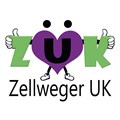Story
Thanks for taking the time to visit my JustGiving page.
On Sunday 10th September 2023 I will be taking part in the FEAR (Forget Everything and Run) 6 hour Ultra Marathon in Brandon Forrest (https://findarace.com/events/fear-forget-everything-and-run). I'll be aiming to run 50km in the 6 hour time limit in an effort to raise as much money as possible for Zellweger UK (https://www.zellweger.org.uk/).
Zellweger UK is my chosen charity for two reasons. The first is to try and help raise awareness of Zellweger Spectrum Disorder (ZSD). The second being that they are an amazing team of volunteers who go out of their way to provide assistance to sufferers of ZSD and their families in the UK. This includes Harry, my girlfriend Emilia's nephew. Whilst the condition Harry suffers with is challenging, he has been a ray of sunshine in the lives of all of his family.
All donations are hugely appreciated. I will be putting together a Spotify playlist to get me through the run so feel free to leave suggestions in your donation comment!
So what is Zellweger Spectrum Disorder?
Peroxisomal Disorder on the Zellweger Spectrum (also sometimes referred to as Generalized Peroxisomal Disorder) is categorised by the absence of peroxisomes. Peroxisomes are cell structures that break down toxic substances and synthesize lipids (fatty acids, oils, and waxes) that are necessary for cell function. Peroxisomes are required for normal brain development and function as well as the formation of myelin, the substance that coats nerve fibres in the brain.
ZSD affects an estimated 1/50,000 live births. Children usually don’t live long into adulthood, however the spectrum is wide and life expectancy ranges from days old to patients who live into their 30s. Most children have some degree of facial characteristics such as a broad nasal bridge, low set ears, a large fontanelle (soft spot) and a high forehead (which in our humble opinion makes for incredibly beautiful children!) they also usually have shortened limbs to some degree and small hands and feet.
Affected children generally show symptoms from birth such as jaundice, hypotonia, failure to thrive and liver dysfunction. Many children fail to pass their newborn hearing screening. As the disease progresses children commonly deal with global disabilities, vision impairment, adrenal insufficiency and seizures. Children may also suffer other common symptoms such as renal stones, low bone density and blood clotting issues that can lead to haemorrhage and intracranial bleeding.
Diagnosis and Genetics
The diagnosis of Zellweger Spectrum Disorder can be determined by biochemical abnormalities detected in blood or cultured skin fibroblasts. The level of very long chain fatty acids (VLCAs) is usually an informative initial screen. Mutations can be found in 13 different PEX genes, but are most commonly found on PEX1. As ZSD is an autosomal recessive condition, each parent has 1 affected gene and 1 non affected gene, therefore the chances of their children being affected is 1 in 4, or 25%. Once their mutation has been identified, further children can be diagnosed by genetic testing either in utero or after birth. It is also possible to determine whether healthy siblings and other members of the family are carriers once each parent’s mutations are identified.
It should be noted that it is still possible to diagnose in utero by biochemical testing if genetic mutations have been identified, but this requires culturing of chorionic villi cells and therefore will take longer than genetic testing.
Treatments
Currently there are no effective treatments for ZSD, only management of symptoms such as cortisol supplementation for adrenal insufficiency, anti-seizure medications, vitamin K for blood clotting disorders and pamidronate infusions for children who suffer with low bone density.
Children have also benefited from supplementation of DHA (docosahexaenoic acid) an essential fatty acid that children with ZSD are often deficient in, and some children seem to benefit from a diet restricted in phytanic acid, although some specialists don’t believe this is largely effective.
All donations go directly to Zellweger UK.
Donating through JustGiving is simple, fast and totally secure. Your details are safe with JustGiving - they'll never sell them on or send unwanted emails. Once you donate, they'll send your money directly to the charity. So it's the most efficient way to donate - saving time and cutting costs for the charity.
